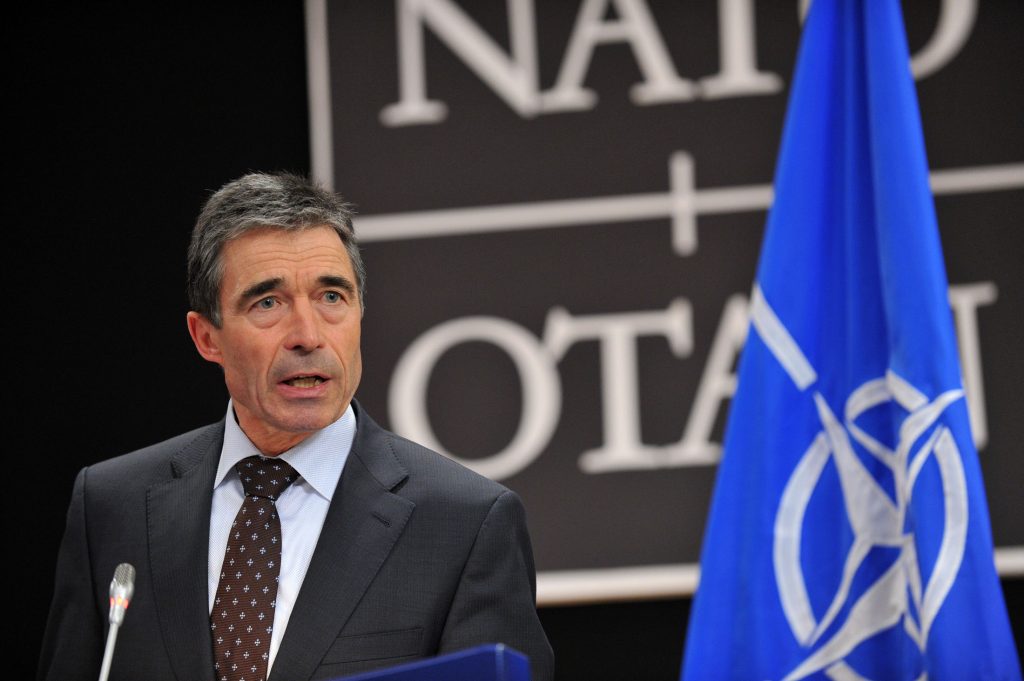
From Judy Dempsey, the International Herald Tribune: When the NATO secretary general, Anders Fogh Rasmussen, addressed a gathering of defense experts last month in Berlin, his speech was called “Principles and Power.”
Mr. Rasmussen’s argument was that the legitimacy of the NATO alliance rested on a unique combination of those two elements. “Our principles demand that we protect our populations and inspire those who desire freedom,” he said at the German Institute for International and Security Affairs.
“And when the cause is just, and the legal basis strong, we can put power behind our principles to protect them. When we have the responsibility to take action, we also have the ability to take action. And when we have to act, we do.”
Mr. Rasmussen made those remarks days before NATO ended its seven-month military mission in Libya, which precipitated the toppling of Col. Muammar el-Qaddafi’s brutal regime.
People in the region have been encouraged by NATO’s involvement in Libya. Sections of the Syrian opposition have called for some kind of international intervention to stop the killing of protesters by President Bashar al-Assad’s security forces, which continues despite mediation efforts by the Arab League. . . .
Yet Mr. Rasmussen’s noble words about principles and power are unlikely to be translated into NATO action in Syria or, for that matter, taking on other new missions in the near future. . . .
Mr. Rasmussen’s philosophy seems selective, not universal, as he made clear during a visit last week to Libya. When he was asked about NATO becoming involved in Syria, Mr. Rasmussen was quick to respond, “I can completely rule that out.”
And then, in an apparent contradiction, he added: “I strongly condemn the crackdowns on the civilian population in Syria. What has happened in Libya sends a clear signal to autocratic regime all over the world. You cannot neglect the will of the people.”
But as one of the participants at the Berlin conference asked Mr. Rasmussen, wasn’t that exactly what NATO was doing in the case of Syria? (photo: NATO)
Image: nato%2011%208%2011%20Rasmussen.jpg
